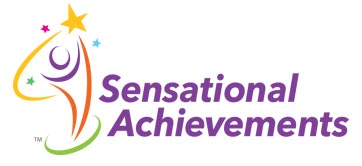What is the Difference Between Praxis and Executive Function? Could a Person have Difficulties with Both?
Executive function is a general umbrella term used to describe a variety of cognitive skills involving self-regulation, mental control of behavior/decision-making, attention, working memory, cognitive flexibility, forward thinking, planning and organization. Dr. Teresa-May Benson, a well known researcher in the area of ideational praxis and advanced clinician in the area of sensory integration, recently expanded on and clarified the differences between executive function and praxis that she has discovered in her research in her Live Talk: Executive Functioning and Praxis available for purchase via The Spiral Foundation.
Praxis is the ability to recognize the affordances of objects, combine that information with knowledge of one’s body to plan, organize, and execute a series of actions. Praxis is more immediate where executive function encompasses information over time and space (eg. the course of a day). Often times symptoms of praxis deficits and executive function appear to overlap and may not be well differentiated by clinicians. If a child presents with sensory and motor deficits, self-regulation and development of higher level cognition related to motor actions can be impacted. While executive functions, sensory, and praxis deficits all impact self-regulation, it is important to identify the components in each area contributing to the child’s total learning profile in order to determine the best interventions and support strategies.
In my own practice and research on how to support children with a diagnosis of ADD and sensory processing disorder, I have learned that children with a diagnosis of ADD/ADHD exhibit excessive eye movements, which can contribute to the presentation of being distractible. Therefore, I use activities that support the development of ocularmotor control and integration of vision with movement. The result is an improvement in the ability to visually attend and focus better. Children with ADD/ADHD may also present with impulsivity and poor body control making them unsafe in their play. I address safety issues through sensory and praxis intervention where both body skills and knowledge about the affordances of objects in the environment was built. For many of my clients, the result is an expansion in awareness about the environment, more participation in goal directed activity with motor skills, and an increase in the child’s ability to participate in more complex play.
It is widely acknowledged that children with ADD also demonstrate difficulties in executive function. Therefore, when faced with a learning task that requires problem-solving, they may give up easily, become frustrated, or exhibit “off task” behavior. They may also have difficulty organizing materials and following daily routines for homework completion or reward charts where the reward is too far in the future. For a child with EFD, short term rewards or frequent check-ins may be more beneficial. For these reasons, support strategies such as graphic organizers, planners, checklists, etc. become valuable tools to support gaps in executive function skills. However, if there are underlying sensory and motor components that are not identified or addressed simultaneously, then it is likely that these types of accommodations alone will not result in a significant overall improvement in daily function or reduced need for adult guidance/supervision.
As you can see, for a person with suspected executive function difficulties or who have a diagnosis where executive function issues are prevalent such as in Autism, ADD, or Non-Verbal Learning Disability, it is important to explore all the pieces of that child’s puzzle. There maybe underlying sensory and motor components that are not yet identified but play a significant role in the child’s overall ability to self-regulate, be actively engaged in the learning process, and develop greater independent learning skills.
Written by: Aubrey Schmalle, SIPT, OTR/L, Director of Sensational Achievements, LLC








